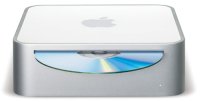The internet is a hostile place. Viruses, worms, and worse are constantly trying to break or break into your computer. Software developers are constantly fixing the holes that can let them in. It’s become critical to keep your system up to date. Unfortunately this can be very frustrating, even for a power user, for one simple reason: you have to keep track of each program individually.
Sure, the operating systems have their own centralized places. Microsoft has Windows Update, and Apple has Software Update. But every application that exposes itself to the network directly or opens untrusted files has to be updated, and there are many that aren’t part of the operating system.
So Symantec has Live Update. Real Player has its own updater. iTunes and QuickTime for Windows can update themselves. Adobe Reader has an update function. Firefox is redesigning its update system. Games check for updates when they connect to the network.
But wouldn’t it be nice if Windows would grab the Acrobat updates overnight, instead of waiting until the next time you launched it? Wouldn’t you like to be able to patch everything on your system at once and just not worry about it? As a software developer, wouldn’t you like to be able to let someone else deal with the update problem instead of re-inventing the wheel yet again?
Continue reading
 Check out the photos. I’ve been looking from time to time at what’s available in the small form factor market, but for the most part PCs are still clunkers compared to the G4 Cube (remember that?), and the Mini makes the Cube look gigantic. The specs for the
Check out the photos. I’ve been looking from time to time at what’s available in the small form factor market, but for the most part PCs are still clunkers compared to the G4 Cube (remember that?), and the Mini makes the Cube look gigantic. The specs for the